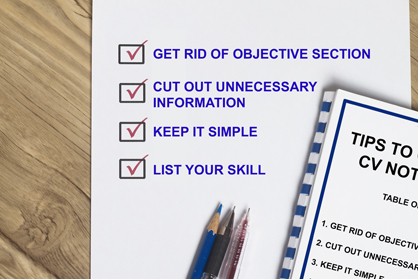Summary: These five techniques have proven useful for increasing your attention span.

According to a recent study, ‘humans of the modern era’ have an attention span which is less than that of a goldfish. This doesn’t come as a surprise thanks to the internet and social media. There are so many distractions it can be nearly impossible to focus on one thing for a long time.
This goldfish-sized attention span can be especially problematic for law students, as the average law school curriculum was certainly not planned for individuals with short attention spans.
There are a number of reasons why law students should be especially diligent in strengthening their attention spans – the sheer volume of reading is just one of them. On average, a law student with 15 credits per semester spends three hours studying outside of class for every hour they spend in class. That’s about forty-five hours of studying per week, on top of the fifteen hours spent in class. That makes it incredibly difficult to succeed for many law students with an average attention span.
Let’s not forget about the final exams and the bar exam. In most jurisdictions, the bar exam is a 12-hour test conducted over two days.
To build your stamina and succeed under these marathon conditions, you need to practice to improve your attention span.
Here are the 5 best techniques to improve your concentration when studying:
1.Create a Pre-Study Ritual
It’s very important to create a routine to help you find your focus. Clear your desk, grab all the materials you need, have a cup of tea. Having a pre-study ritual will help train your brain to transition into a state of focus.
2. Use the Best Online Tools
Instead of blaming modern technology for creating too many distractions-utilize it for your good. There are many great apps out there that basically force you to focus by locking down your phone or internet or even ones that block specific apps, such as Facebook. Brain.fm is another great online tool, that uses music to influence your mental state. The AI music composer uses auditory rhythms that have been proven to help you focus.
3. Practice Meditation
A 2010 research study inspired by Buddhist monks shows that meditation can help you focus on tasks for an extended period of time. The study suggests people who practice meditation daily are more attentive and focused, as the practice boosts attention span.
“People may think meditation is something that makes you feel good and going on a meditation retreat is like going on vacation, and you get to be at peace with yourself. That’s what people think until they try it. Then you realize how challenging it is to just sit and observe something without being distracted.” said Katherine MacLean, who worked on the study as a graduate student at the University of California – Davis.
Take at least five minutes per day to practice meditation and your focus and concentration will improve dramatically. If you can spare more time, aim for at least 20 minutes.
Focus on your breath and when your brain starts going places, return your attention to your breath. That’s meditation in a nutshell. You can find proper meditation courses on YouTube and using apps such as Headspace.
4. Use the Pomodoro Technique
One of the most popular productivity methods, the Pomodoro Technique is a time management technique where you work in 25-minute blocks with five-minute breaks. It was invented in the early 1990s, by Francesco Cirillo, a software developer, to help him focus on his studies during university. He would set a tomato timer for 25 minutes and during this period he would perform his work. He would then take a short break between each interval.
After a while, Cirillo found his focus and attention span vastly improved. Try this technique the next time you can’t focus. It should help you get used to working for long stretches at a time. If you implement this method frequently, it could even improve your attention beyond 25 minutes.
If you don’t have a tomato timer on hand you can use this online timer which is built for people using the Pomodoro Technique.
5. Focus on One Task At a Time Instead of Multitasking
Multitasking is a major factor behind a short attention span because it creates stress and divides your attention, making you less productive. When you are focused on multiple tasks at a time your brain is frantically switching back and forth. Single-tasking is an excellent way to stay focused on one thing at a time.
This means if you are working on a paper, put everything else away. Close down any tabs that you don’t need for that particular assignment. Turn off your cell phone or put it in another room so you are not tempted to check it every few minutes. And if you choose to listen to music while studying, avoid music with a drumbeat or vocals because those elements demand your attention more than softer instruments such as piano and violin.
Implement some of these techniques and they will help you increase productivity in your life and legal education. Stay positive even if you don’t see improvement right away.
Remember, it takes 21 days to form a habit. Keep at it!








 (3 votes, average: 3.67 out of 5)
(3 votes, average: 3.67 out of 5)




































